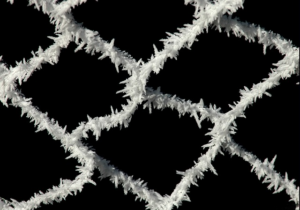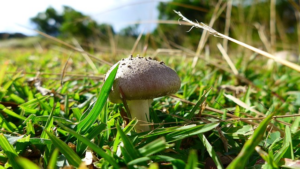Eco-Friendly Yard Waste Disposal and Recycling: A Guide to Keep Your Lawn Clean
Yard waste encompasses organic materials like leaves, grass clippings, branches, twigs, and woody matter from landscaping activities. Effective yard waste removal and recycling through composting not only reduces environmental impact but also i…….

Yard waste encompasses organic materials like leaves, grass clippings, branches, twigs, and woody matter from landscaping activities. Effective yard waste removal and recycling through composting not only reduces environmental impact but also improves soil quality for sustainable gardening. Municipalities offer yard waste recycling programs that separate this material from regular trash, diverting it from landfills and producing compost or mulch. These initiatives are crucial for environmental health, as they mitigate waste and create beneficial products for community use. Yard waste removal and recycling programs, including curbside pick-up services and community collection events, play a vital role in this process, ensuring proper disposal and preventing methane emissions. Homeowners can contribute to sustainable waste management by engaging in composting or participating in these programs, reducing reliance on chemical fertilizers and enhancing gardening practices. The expansion of regional composting facilities and interregional collaboration further amplify the positive environmental impact of yard waste recycling, emphasizing the importance of these eco-friendly solutions nationwide for a healthier planet.
Managing yard debris is a seasonal task for many homeowners, with fallen leaves, trimmed branches, and lawn clippings being inevitable byproducts of maintaining a healthy landscape. This article demystifies the process of yard waste removal and recycling, offering practical solutions to dispose of this organic material responsibly. From understanding what constitutes yard debris to exploring local programs and DIY composting methods, we’ll guide you through eco-friendly disposal options that keep your garden clean while promoting environmental sustainability. Yard Waste Removal and Recycling are not just about tidying up; they’re integral to soil health and a greener planet.
- Understanding Yard Waste: What Qualifies as Yard Debris?
- Eco-Friendly Disposal Options for Yard Waste Removal
- Local and Regional Yard Waste Recycling Programs
- DIY Composting Solutions for Homeowners
Understanding Yard Waste: What Qualifies as Yard Debris?

Effective yard waste removal and recycling begin with understanding what constitutes as lawn debris. Yard waste encompasses a variety of organic materials that result from routine landscaping maintenance, such as leaves, grass clippings, branches, twigs, and woody material. These materials can significantly contribute to landfill waste if not managed properly. However, they offer valuable nutrients when composted or processed through yard waste removal programs. Composting is an environmentally sound method of recycling these materials back into the soil, improving its structure and fertility. It’s a practical solution for gardeners and homeowners to reduce their environmental footprint while also creating a beneficial product for their gardens.
Local waste management authorities often provide guidelines on how to separate yard waste from other types of trash. This separation is crucial as it allows for the efficient processing of yard waste through recycling facilities, which convert these materials into compost or mulch. These facilities not only divert waste from landfills but also create useful products that can be sold or distributed within communities, thus promoting sustainable landscaping practices. Understanding and adhering to the proper disposal methods for yard debris is essential for maintaining a healthy environment and ensuring that these materials are effectively recycled rather than contributing to waste accumulation. Yard waste removal and recycling programs play a vital role in this process, offering convenient solutions for homeowners to responsibly manage their lawn debris.
Eco-Friendly Disposal Options for Yard Waste Removal

Yard waste, consisting of grass clippings, leaves, branches, and twigs, is a natural byproduct of maintaining a healthy lawn. Traditional disposal methods often involve bagging and transporting this material to local landfills or collection centers. However, there are eco-friendly alternatives that not only reduce environmental impact but also contribute to the health of ecosystems. Composting is one such option; it recycles organic matter back into the soil, enriching it for future plant growth and reducing the need for chemical fertilizers. Municipalities across the country are increasingly offering yard waste recycling programs that convert organic lawn debris into compost. These programs often collect yard waste separately from other waste streams, ensuring that the resulting compost is of high quality and can be used by residents in their gardens or donated to community gardens. Another method for eco-conscious disposal is chippers or shredders that transform branches and twigs into mulch or wood chips, which can then be used as a soil amendment or pathway material, further reducing the need for landfill space and promoting soil health. Additionally, many communities host annual yard waste collection events, providing residents with an opportunity to dispose of larger debris responsibly. By utilizing these eco-friendly disposal options for yard waste removal, homeowners can significantly minimize their environmental footprint while simultaneously fostering sustainable landscaping practices.
Local and Regional Yard Waste Recycling Programs

Many communities offer specialized yard waste removal and recycling programs designed to streamline the process of disposing of lawn debris. These local initiatives are crucial for maintaining environmental health, as they divert organic matter from landfills and convert it into valuable compost or mulch. Participants can often take advantage of scheduled curbside pick-up services, where yard waste is collected separately from regular trash. This ensures that grass clippings, leaves, branches, and other organic materials are processed correctly. Regionally, these programs are expanding, with many areas implementing composting facilities that convert yard waste into nutrient-rich soil amendments. These facilities not only aid in the reduction of methane emissions from landfills but also provide residents with access to free or subsidized compost, which can enhance garden and lawn health while reducing the need for chemical fertilizers. Homeowners are encouraged to participate in these programs to contribute to sustainable waste management practices and promote eco-friendly landscaping. Additionally, regional yard waste recycling networks often collaborate to optimize resource recovery and share best practices, further enhancing the efficiency and impact of these initiatives.
DIY Composting Solutions for Homeowners

homeowners with yards understand the challenge of managing lawn debris, including grass clippings, leaves, and small twigs. Yard waste removal and recycling present opportunities to transform this organic material into nutrient-rich compost, which can then enrich your garden soil. DIY composting solutions are not only cost-effective but also environmentally friendly. By setting up a compost pile or a more structured compost bin in a suitable corner of your yard, you can begin the process of breaking down organic matter. The key to effective composting lies in balancing green (nitrogen-rich) and brown (carbon-rich) materials. Green materials, such as kitchen scraps and fresh grass clippings, provide nitrogen, while brown materials like dry leaves, straw, and shredded paper offer carbon. Regular turning of the compost pile aerates it and speeds up the decomposition process. Monitoring moisture levels and ensuring a diverse range of organic waste will lead to the transformation of yard waste into high-quality compost, which can then be used to improve soil structure, increase water retention, and stimulate plant growth in your garden. Yard waste removal and recycling through DIY composting not only reduces the need for commercial fertilizers but also contributes to a healthier ecosystem by returning valuable nutrients back into the soil.
Effective yard waste removal and recycling practices are crucial for maintaining both the health of one’s lawn and the environment. This article has provided a comprehensive overview of understanding what qualifies as yard debris, the eco-friendly disposal options available, local and regional programs designed to handle such waste, and DIY composting solutions that homeowners can implement. By adopting these strategies, you not only contribute to a greener planet but also enhance your outdoor space. Embracing yard waste recycling is a simple yet impactful step towards sustainable living. Homeowners are encouraged to explore the options presented to ensure their lawn debris is disposed of responsibly and effectively, promoting environmental stewardship in their communities.







